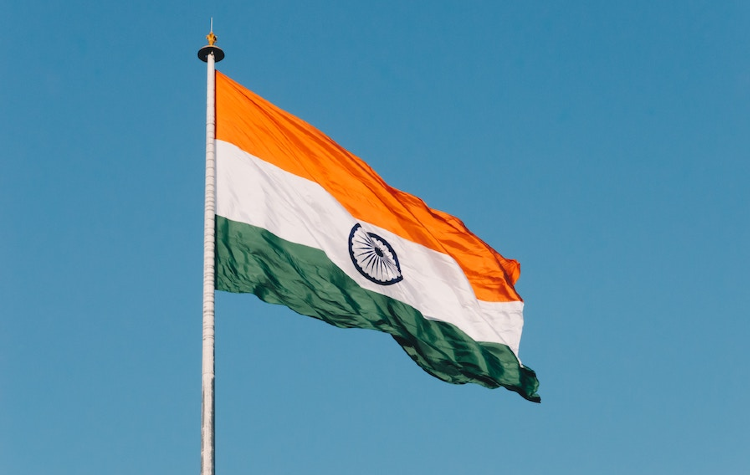(Bangkok/Kathmandu, 13 October 2020) – Civic space in India is at risk of shrinking even further with the recent amendment to the Foreign Contribution (Regulation) Act (FCRA) – a regressive step in the world’s largest democracy, Asian Forum for Human Rights and Development (FORUM-ASIA) and eight of its member organisations in India said in a statement today.
The problematic provisions would clamp down on the way civil society organisations operate including in organisational structure, funding sources and project implementation – crushing the necessary and crucial role of civil society in the country.
FORUM-ASIA and its members said that the amendment, passed by both Houses of the Indian Parliament last month, raised serious concerns on the right to freedom of association of the Indian people with these restrictions.
‘The Government of India should instead be upholding the right to freedom of association while protecting and enlarging the protection of civic space to ensure a thriving democracy. The amendment does the opposite, hence we are calling for its repeal,’ the groups said.
The FCRA was first introduced in 1976 to regulate foreign contributions to individuals or associations in India. The Act gives the government a wide range of discretionary powers to allow, suspend, refuse or cancel an organisation’s permit to receive foreign funding. Increasingly, these powers have been used arbitrarily by the government against organisations that are critical of its institutions and policies on human rights.
With the latest amendment, the regressive provisions will now prohibit the sub-granting of foreign funds, unless a grantee organisation is registered under the FCRA. This will cause difficulty in programme implementation, as not all grassroots organisations meet the requirements to be registered under the FCRA. The amended Act also reduces the cap on administrative costs from 50% to 20%, which would impact all organisations relying on foreign funds.
The amendment adds a new provision regarding the freezing of an organisation’s unutilised foreign funds, which will now be possible based on ‘any information or report’ and after a ‘preliminary inquiry,’[1] which are often vaguely worded and leaves room for interpretation. Prior to the amendment, only if an organisation is proven guilty of contravening the provisions of FCRA can the government freeze its funds. The new provision would be arbitrary and unjust as it can be easily used to target and harass CSOs and human rights defenders, who very often express criticism and dissent towards the government.
The amendment will also mandate all office bearers and trustees of organisations registered under the FCRA to share details of their biometric ID, which in itself has been facing criticisms over privacy concerns.[2]
Though transparency and accountability are essential, making this mandatory goes against the right to privacy guaranteed by the Indian Constitution.[3] The amendment also extends the power of the government to suspend an organisation’s registration under FCRA, beyond the usual 180 days.
FCRA CONTRAVENES INTERNATIONAL LAW AND STANDARDS
A detailed legal analysis[4] made by the United Nations (UN) Special Rapporteur on freedom of assembly and association in 2016, noted that FCRA is in contravention to international law and standards. The legal analysis states that the ability of CSOs to access resources, including foreign funding, is a fundamental part of the right to freedom of association under international law, standards, and principles – and more particularly part of the right to form an association.
Last year when India contested a seat at the UN Human Rights Council, the government pledged that ‘India will continue to foster the genuine participation and effective involvement of civil society in the promotion and protection of human rights.’ However, by passing the amendment to the FCRA, the Indian government has added more teeth to an already draconian and arbitrary law.
In the past, the Indian government has used FCRA to crack down on prominent CSOs such as Amnesty International India,[5] People’s Watch[6], Greenpeace India, Lawyers Collective,[7] Citizens for Justice and Peace, Sabrang Trust,[8] and Navsarjan Trust.
The amended Act will have far-reaching implications not only to CSOs but also to the communities they work with, particularly in areas of human rights and development.
The groups reiterated its call for a repeal of the FCRA and called on the Government of India to ensure an enabling environment for civil society to freely promote and protect human rights and to end the harassment of CSOs and human rights defenders using repressive laws.
The joint statement is endorsed by:
- The Asian Forum for Human Rights and Development (FORUM-ASIA)
- Association of Parents of Disappeared Persons (APDP)
- Banglar Manabadhikar Suraksha Mancha (MASUM)
- Centre for the Sustainable Use of Natural and Social Resources (CSNR)
- Dalit Foundation
- Human Rights Alert (HRA)
- People’s Watch (PW)
- Rights Education And Development Centre (READ) – Associate Member
- South India Cell for Human Rights Education and Monitoring (SICHREM)
**
For a PDF version of this joint statement, please click here.
For further information, please contact:
- South Asia Programme, FORUM-ASIA, [email protected]
For media inquiries, please contact:
- Melissa Ananthraj, Communication and Media Programme, FORUM-ASIA, [email protected]
[1] Section 5, Foreign Contributions (Regulations) Act, 2020
[2] https://thewire.in/government/privacy-aadhaar-supreme-court
[3] https://www.huffingtonpost.in/2017/08/24/right-to-privacy-is-a-fundamental-right-under-the-indian-constitution-says-supreme-court_a_23159499
[4] http://freeassembly.net/wp-content/uploads/2016/04/UNSR-FOAA-info-note-India.pdf
[5] https://forum-asia.org/?p=33032
[6] https://forum-asia.org/?p=21845



